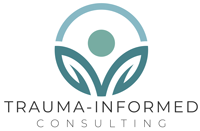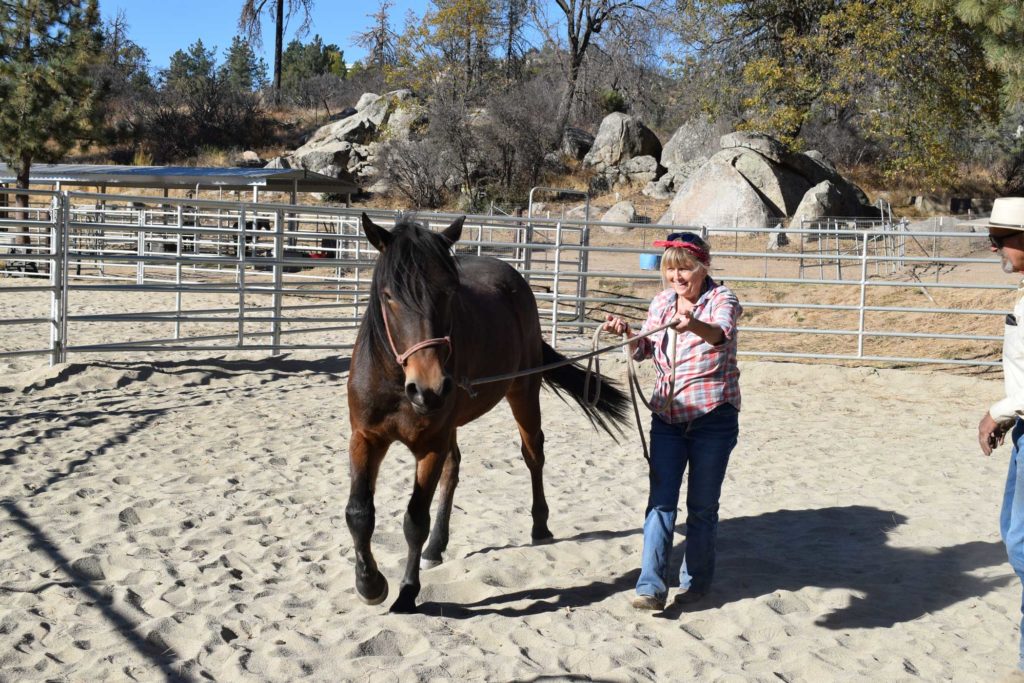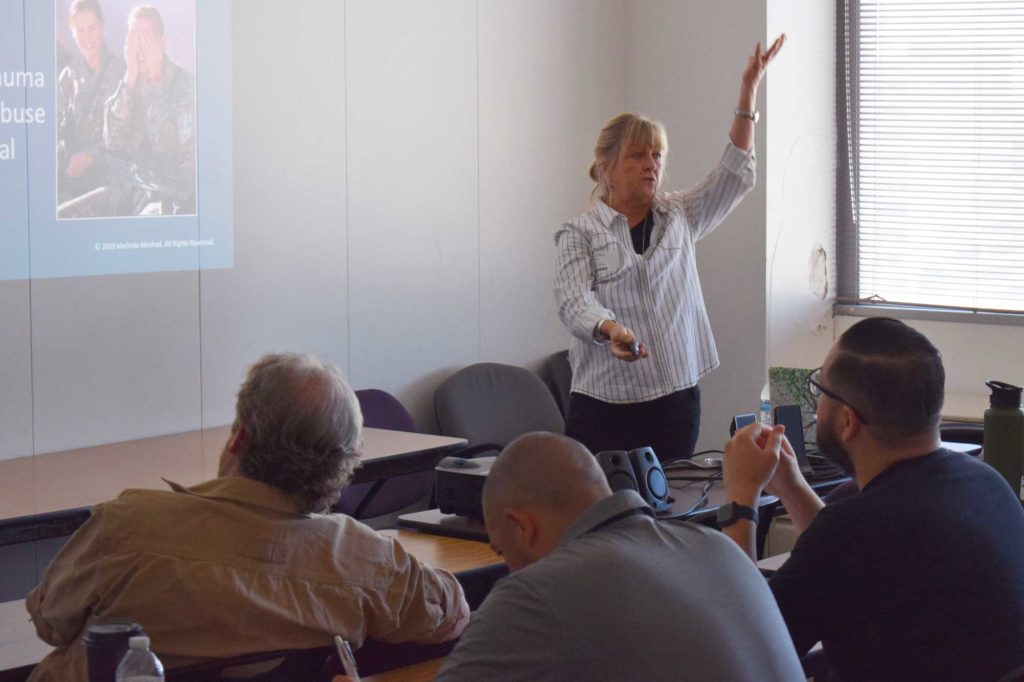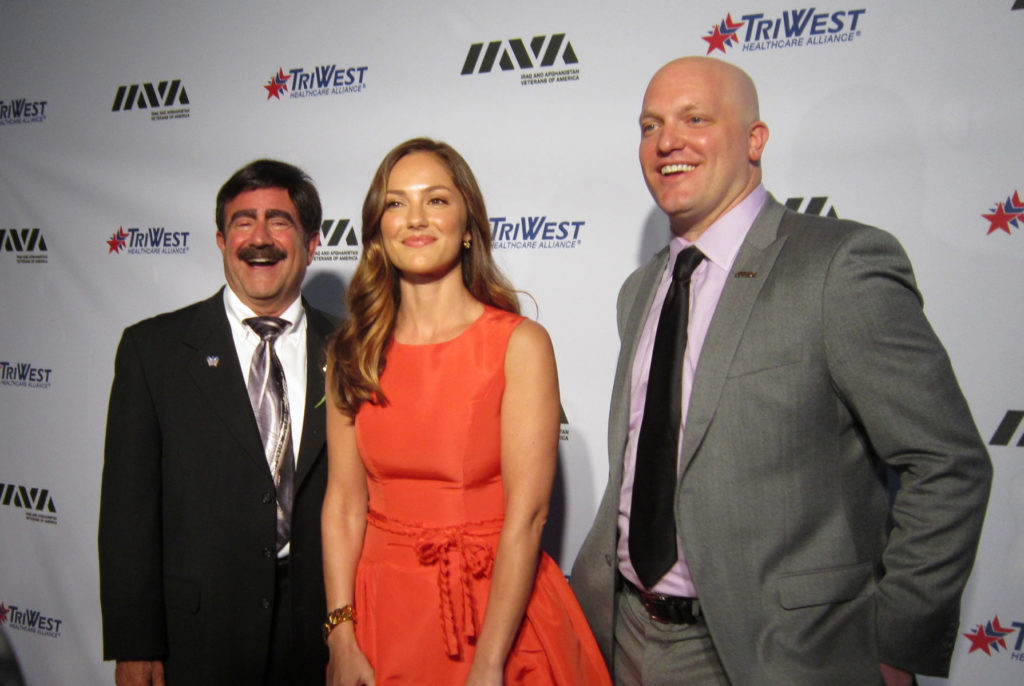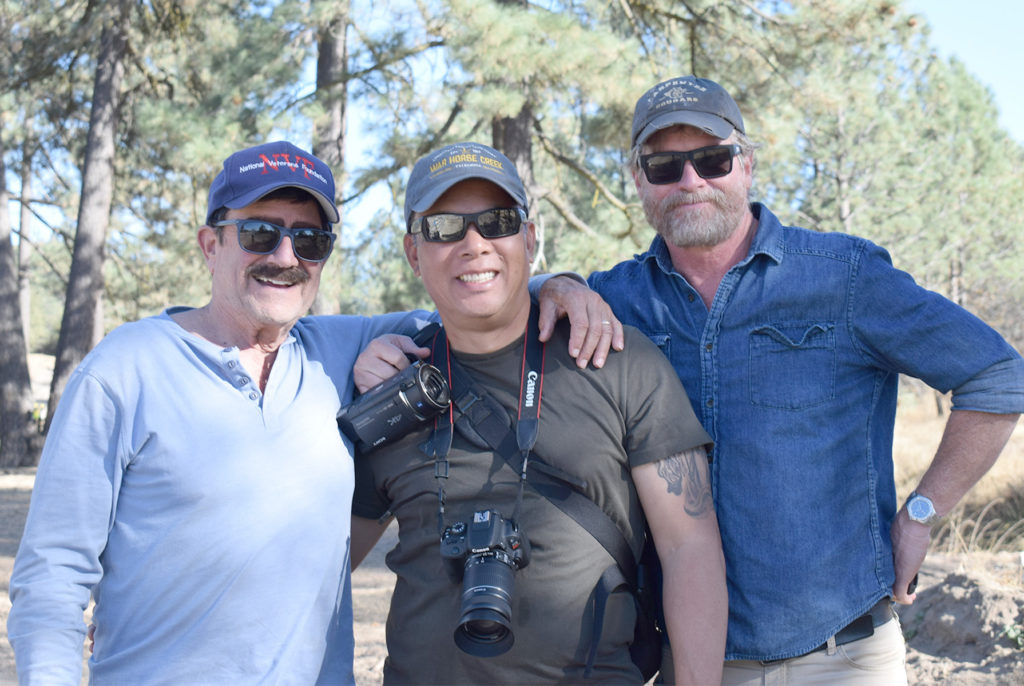Meet the Team
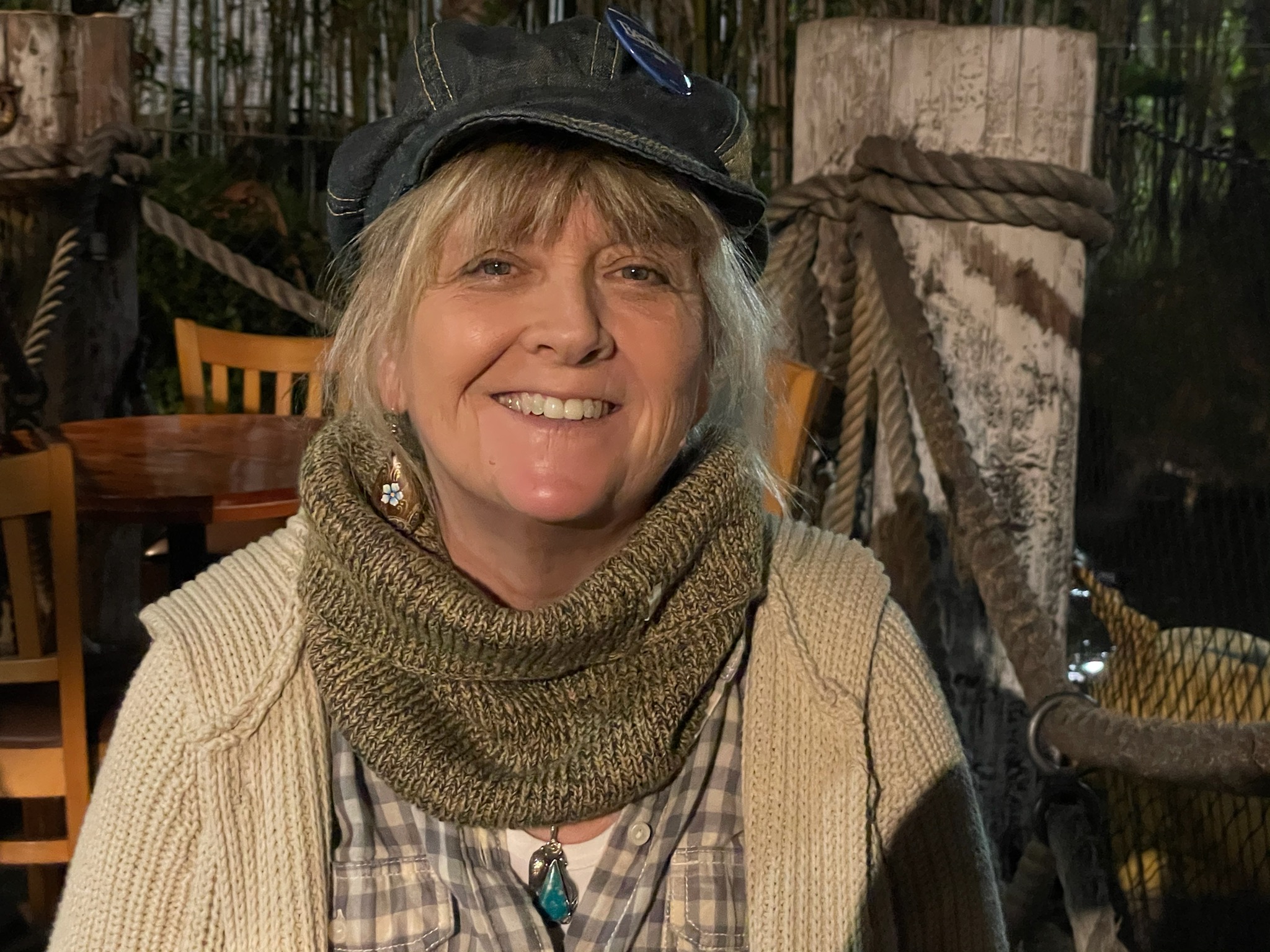
MELINDA MESHAD
LCSW
Melinda Meshad, LCSW has over twenty-five years working with individuals and families, including many who have experienced severe adversity and trauma. This began, actually, during her undergraduate years at Occidental College when she got actively involved with refugees fleeing war in Central America and seeking sanctuary. This was the first time she got to know folks who had survived extensive trauma from war, migration, and even torture. She found that her volunteer time was highly satisfying and felt the call to continue in the helping profession. After college, she worked with incarcerated youth and taught special education before obtaining her Masters in Social Work. Throughout the years, regardless of what she was doing in her job, she always seemed to volunteer somewhere. She went to Mexico to build homes, volunteered with a local youth group, spent time in Hungary working at a children’s camp, and raised money for the families of her students that could not afford even a turkey. When she first met her husband Shad, she right away began volunteering as a crisis counselor for his non-profit, particularly being available for female vets that had suffered sexual trauma. After years working in the field of child welfare including 4 years in the foster youth department and then 4 additional years as a training supervisor for newly hired social workers, she decided it was time to focus on her own passion of trauma-informed care.
The interest in the science of trauma actually grew out of a conference she attended in 2010 at UCLA. There were numerous experts in the field, but the problem was that they each discussed their area of expertise and there never was the basic talk as to where each lecture fit into the whole picture. She came out of those 3 days totally confused, but also determined to connect the dots.
For several years she read, researched, attended training, and found informative groups websites that helped her better understand trauma, the impact, as well discovering the ACE study and the research done regarding the impact of adverse childhood experiences. What she realized is how difficult it is to make sense of research, and yet how important it is for us to understand the impact of chronic stress and trauma. Science is fascinating and has lit the way to finding healthier approaches to the way we engage one another. It helps us link the needs with positive interventions. For social workers, teachers, medical staff, librarians, police officers, or peer supporters, it is critical that they recognize the symptoms and engage in a way that is safe and brings healing. Melinda worked in social service agencies and schools that treated clients in a punitive manner, that disempowered people, leading to mental health and physical problems. The more she learned, the more sensitive she became to effective client engagement which resulted in positive growth in her clients. She realized that there is truly magic that comes out of healing relationships. She could be professional and take a collaborative client-centered approach.
In 2018 Melinda quit her day job, opened her psychotherapy private practice and got busy writing a transformative trauma-informed training, 4 Points Builds a STAR. This training is critical in the understanding of trauma-informed care, providing “why” behind the symptoms of trauma, making sense of the “how” we should engage, and in the evaluation and creation of policy and practice that are consistent with trauma-informed core principles.
A unique focus of the 4 Points Builds a STAR on the human service worker, the self-work that is needed to be empathic, and the many tools provided for engagement. This was the beginning of the Trauma-Informed Consulting which she does along with her husband, Shad Meshad, who also continues to run a national crisis line under the National Veterans Foundation. Over the past two years they have trained in areas such as veteran services, homelessness, and adolescent programs. But this is only the beginning. Trauma-Informed Consulting has gone beyond training to include guiding organizations to integrate the core principles through their policies, practices and community partnering. This is great timing now that agencies are being asked and often mandated to bring the practice of trauma-informed care into their organizational systems and client engagement.
Overall, Melinda believes in a solution-focused, relational, and client-centered approach to her work, being open to the many ways that individuals and agencies find their own solutions and pathways to wellness. This is consistent with trauma-informed principles and is her philosophy when working with individuals in therapy. If there is one word that explains Melinda’s approach to all that she does, it is empowerment. “I promote collaboration over competition, acceptance over judgement, and common good over individual promotion. We are all important and I feel blessed to be a part of the solution.”
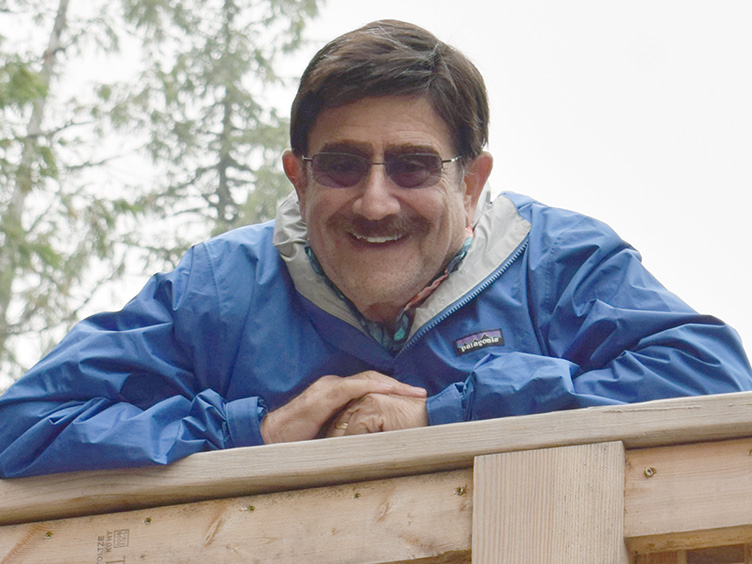
SHAD MESHAD
LCSW CTS
Shad’s career actually began in the Vietnam war as a psych officer, helping young soldiers cope with the trauma of combat and often struggling with the administrators to keep them from sending the psychologically wounded back to the front lines. His book Captain for Dark Mornings is an account that year, not being afraid to show us the absurdities and inequitable treatment that he witnessed.
When he returned home, he thought he would take time off and kind of “drift” and take time to process the horrors, but that wasn’t to be the case. The Veteran’s Administration recruited him to help them figure out why Vietnam vets were avoiding the VA. After months of resistance, he agreed to come on board and provide them insight into why the returning soldiers had little interest in trusting another bureaucracy.
Given the freedom to create his own program in the West LA VA, he knew what to do – go to the veterans, wherever they were! He got on his motorcycle, found them in the canyons and abandoned buildings and began holding “rap groups” throughout the city. By 1974, he was called the “madman,” with a national reputation and a first-of-its-kind readjustment program that focused on getting out into the community, serving vets where they were clustered.
By 1979, with the passing of the National Vietnam Veterans Readjustment Bill, President Carter reached out to Shad to help author a nationwide program that would be based on his philosophy of meeting the needs of veterans in their own communities. This program, known as the Vet Center Program, has been serving veterans for over 40 years in over 300 locations. For the next 7 years, Shad opened up and oversaw the first 100 clinics, often struggling in the political arena to keep the funding going. In other words, he had to continue being the warrior he was in Vietnam!
After years of overseeing the vet center program, Shad decided it was time to get back to the streets and fill a badly needed gap of a national crisis line. Starting small in his home office, Shad opened up the first hotline for veterans and their families which is now known as the National Veterans Foundation (NVF).
Shad struggled to get the crisis line off the ground until he got a break. After Keith Knudsen of the Doobie Brothers was given Shad’s memoir, Captain for Dark Mornings, he became a believer in Shad’s cause. In what Rolling Stone called the “Reunion concert of the 80’s,” performed at the Hollywood Bowl on memorial weekend in 1987, Keith reunited the Doobie Brothers and began his own partnership with Shad to help those veterans struggling to re-integrate back into society. Keith really became part of the team, putting together yearly benefits that included talent such as Michael McDonald, Graham Nash, Willie Nelson, Chris Kristofferson, and Logins and Messina. It was a very sad time when Keith passed. Shad continues to miss his dear friend and soulmate in this mission.
Shad’s dedication to help his Vietnam vets was contagious. Comedian and Vietnam vet Blake Clark pulled in some of the greats….Robin Williams Jim Carrey, Mike Wallace, Milton Berle, Sid Caesar, Rosanne Barr…to name a few to perform in an annual comedy event. That same year, Robin showed his true colors when he generously donated his music royalties from Good Morning Vietnam to the National Veterans Foundation.
Shad remembers those events as great times. “This was the 70’s and there was a spirit of change in the air. We thought that it was the end of war and that we could make a big dent in the problems that our veterans face. I was all over the place — in the streets, in the prisons, fundraising, taking the calls, on radio and tv, and doing whatever I could. I slept only a few hours a night. I guess you might say, it was my own addiction.”
In fact, Shad’s dedication led Shad to unexpected places, and taught him that veteran trauma has no borders when he answered the call from Washington to travel to Russia where for weeks he held “rap groups” with the soldiers who fought in Russia’s Afghan war. He went there on several missions and met incredible vets whom he still is in contact with. But there came a point where he had to choose where he was going to be, Russia or here in the US to continue the work of the NVF. He eventually said goodbye to his comrads across the seas and began building his own non-profit here at home.
Shad has continued his mission to help veterans from all wars in every situation, from those in prison, on the streets, and/or struggling with drug addiction, to those who appear functional but suffer with PTSD in secret. He took up the cause of defending veterans in criminal court, funding the development and publication of the book, Defending Vietnam Vets in Criminal Court, and more recently contributing to and funding Defending the Veteran in Criminal Court. His reach has gone beyond the veteran population, training internationally in the areas of critical incidents and trauma. In the wake of the catastrophic events of September 11, 2001 Shad was there, training the critical incident and trauma teams at Ground Zero.
For the past 35 years, Shad has been President of the National Veterans Foundation (NVF). Fundraising to keep the mission going has become more difficult in these economic times. Knowing, often from first-hand experience, how difficult it is to get both treatment and compensation from the VA, Shad and his NVF crew help vets navigate the system. With the growing number of women veterans, the NVF has opened a program that focuses on women vets’ unique readjustment struggles. The NVF hotline helps connect veterans and their families nationwide with resources for housing, substance abuse addiction, and mental health treatment.
As a therapist, Shad takes calls from vets struggling with PTSD, Traumatic Brain Injury, or suicidal ideation.
Most recently, the NVF has partnered with his wife, Melinda Meshad, and her Trauma-Informed Consulting training program, 4 Points Builds a STAR. Together they are committed to bringing their own experience of being “boots on the ground” alongside the incredible science that has led us in our understanding of childhood adverse experiences and trauma-informed care in order to train veteran peers and other human services specialists. In fact, the training ends up often resembling his old “rap groups” with the participants realizing how their own experiences impact their behavior and the way they engage others. Now however, they have the understanding and tools to do their personal work and drive the way they empower their own clients. “What Melinda and I realized is that so much of the work even in the early days was effective because it was based on the principles of trauma-informed care. I went out into the community where vets felt safe, took the time to build rapport and trust, listened and gave them a voice free of judgement (which was rampant towards Vietnam vets at that time) and have always taken an egalitarian approach. Really, I am a peer support myself.”
While Shad has appeared on 60 Minutes, Real Time with Bill Maher, 20/20, Dateline, Nightline, and CNN News, you’re guaranteed to see him at the National Veteran’s Foundation, right here in Los Angeles, continuing to advocate and meet the needs. In fact, you might have seen him with the outreach team in the streets of LA during the pandemic, handing out boxes of provisions including masks to the homeless. He is at the office, on the phone, in the streets, and training others to take on this difficult work. He still runs hard.
Shad continues to be recognized by those whose lives he has touched. Shad was given the Community Service Award for Lifetime Achievement from the Iraq & Afghanistan Veterans of America. He’s also received U.S. Congressional Recognition for his life’s work counseling and advocating for veterans. If you would like to know more about the National Veterans Foundation, or know veterans that need help, please call the NVF at 310-642-0255. If you are interested in training and trauma-informed consultation, please contact us here at Trauma-Informed Consulting.
